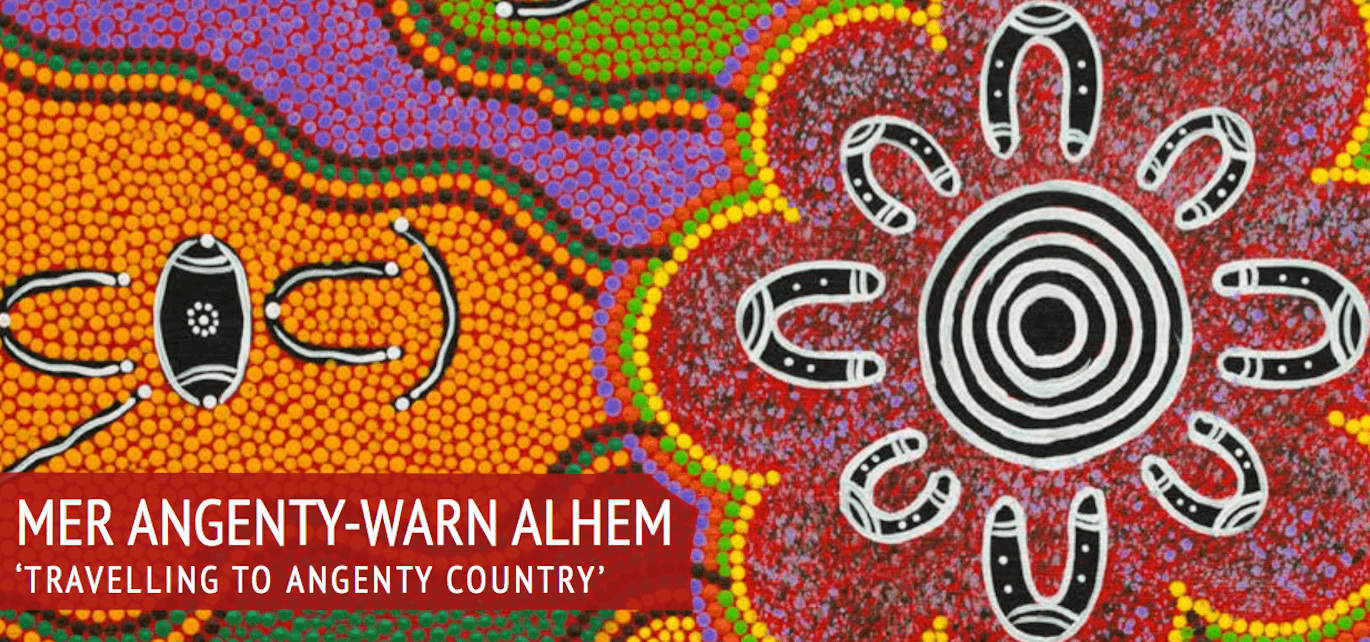

New and inventive forms of storytelling are combining traditional knowledge with modern technology.
Batchelor Institute and Batchelor Press have been working to present a number of books that allow readers to listen to culturally significant songs straight off the page. These stories tie in the importance of music in traditional Indigenous narratives.
The latest release from this series of books is about traditional music from Central Australia, titled Mer Angenty-warn alhem or ‘Travelling to Angenty waterhole’.
Angenty is a sacred waterhole in Anmatyerr and Warlpiri country, to the north of Alice Springs in Central Australia. This book narrates a family visit to this place. Men, women and children camped in the riverbed and the elders told stories about the ancestral spirits of this country, including Mern amar ‘Mulga Apple’, Arrkerr ‘Barn Owl’, Arnamarwengk ‘Spirit Women’, Tywerrk ‘Native Fig’, and Alharrenty ‘The Monster’. Senior women painted up the young girls and taught them some songs, dances and designs associated with these beings.
Since then a team led by April Pengart Campbell, and including Clarrie Kemarr Long, Jenny Green and Margaret Carew, have worked together on documenting this valuable cultural knowledge.
The book includes the rhythmic structures, words and interpretations for each song, and is enriched with images and sound recordings. There are also films that accompany the story, which can be watched online via printed passwords supplied in the book.
This project has been supported by the Australian Government’s Indigenous Languages Support Program, and auspiced by Batchelor Institute’s Division of Higher Education and Research.
Jenny Green’s ongoing research on Central Australian languages and narrative forms is supported by the Australian Research Council, through the Research Unit for Indigenous Language at the University of Melbourne
There are other sound printed books presented by Batchelor Institute and Batchelor Press.
Antarrengeny Awely: Alyawarr features women’s songs from Antarrengeny. This song series, from the Utopia region of central Australia, is one of the most well-known women’s ceremonies. In this book, senior Antarrengeny custodians explain the meanings and significance of 57 of their songs and we see how art, dance and song are intertwined in Aboriginal performance.
Gun-ngaypa Rrawa ‘My Country’ presents stories from the Gun-nartpa people who live in North-Central Arnhem Land. These stories tell of Ancestral Spirits who created the country, and who are celebrated in ceremonies and visual arts.
If you would like more information about the books or to order a copy, contact Batchelor Press
Phone: (08) 8939 7352
